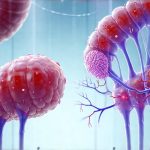Long-term medication use, while often life-saving or symptom-managing, can profoundly impact our bodies beyond the intended therapeutic effects. Years of pharmaceutical intervention frequently disrupt the delicate ecosystem within our digestive system – the gut microbiome – leading to imbalances that can hinder overall health and complicate recovery when attempting to reduce or discontinue medications. This isn’t merely about digestive discomfort; it’s about a systemic influence, as the gut is intricately linked to immune function, neurological health, hormonal balance, and even mental wellbeing. Understanding this connection is paramount for anyone navigating medication withdrawal or seeking to optimize their health post-medication use.
The conventional focus often remains on managing symptoms associated with discontinuation syndrome or withdrawal effects, but a more holistic approach acknowledges the underlying gut dysbiosis as a significant contributing factor. Restoring and maintaining gut health isn’t always a quick fix; it’s an ongoing process of nurturing the microbial communities that support our physiological processes. It requires a nuanced understanding of how medications alter the gut environment, recognizing individual sensitivities, and implementing targeted strategies to rebuild resilience. Ignoring this crucial aspect can prolong recovery times, intensify withdrawal symptoms, and potentially create new health challenges down the line.
The Gut-Medication Connection: How Drugs Impact Our Microbial Ecosystem
Many commonly prescribed medications—even those seemingly unrelated to digestion—can significantly disrupt the gut microbiome. Antibiotics are perhaps the most well-known culprits, indiscriminately killing both harmful and beneficial bacteria. But their impact is just the tip of the iceberg. Proton pump inhibitors (PPIs), frequently used for acid reflux and heartburn, can alter stomach acidity levels, creating an environment where certain microbes thrive while others struggle. Nonsteroidal anti-inflammatory drugs (NSAIDs) have been shown to damage the gut lining, increasing intestinal permeability – often referred to as “leaky gut” – which allows undigested food particles and toxins to enter the bloodstream, triggering inflammation. Even seemingly benign medications like metformin for diabetes or certain antidepressants can influence microbial composition and diversity.
The consequences of these disruptions extend far beyond digestive symptoms. A compromised gut microbiome weakens our immune defenses, making us more susceptible to infections. It impairs nutrient absorption, leading to deficiencies even with a balanced diet. The gut-brain axis—the bidirectional communication pathway between the gut and the brain—is particularly vulnerable; imbalances in gut bacteria can influence neurotransmitter production (like serotonin and dopamine), impacting mood, cognitive function, and potentially exacerbating anxiety or depression. Essentially, medication-induced dysbiosis sets off a cascade of effects that ripple throughout the body. Understanding gut inflammation is key to understanding these impacts.
Furthermore, the length of time on a particular medication plays a crucial role. The longer the exposure, the more profound and persistent the alterations to the gut microbiome tend to be. This is why individuals coming off long-term medications often experience more significant withdrawal symptoms or struggle with restoring optimal health compared to those who have only taken medications for shorter periods. It’s not just what medication we take but also how long we take it that matters.
Rebuilding Gut Health: Strategies for Recovery
Recovering from medication-induced gut dysbiosis requires a multifaceted approach, focusing on restoring microbial diversity and improving gut barrier function. Dietary modifications are foundational. A diet rich in prebiotic foods – those containing fibers that feed beneficial bacteria—is essential. Examples include garlic, onions, leeks, asparagus, bananas (slightly green), oats, and apples. Fermented foods like yogurt (with live cultures), kefir, sauerkraut, kimchi, and kombucha introduce probiotics – live microorganisms that can help repopulate the gut. However, introducing fermented foods too quickly or in large quantities can sometimes exacerbate symptoms, so it’s best to start slowly and observe your body’s response.
Beyond diet, lifestyle factors play a significant role. Managing stress is crucial because chronic stress negatively impacts the gut microbiome and increases intestinal permeability. Incorporating regular physical activity, prioritizing sleep, and practicing mindfulness or meditation can all help mitigate these effects. Additionally, minimizing exposure to environmental toxins – such as pesticides, herbicides, and pollutants – can further support gut health. Supplementation with probiotics may be beneficial for some individuals, but it’s important to choose strains specifically targeted to address the imbalances caused by your medications and to consult with a healthcare professional before starting any new supplements. Remember that probiotic supplementation isn’t a one-size-fits-all solution.
Importantly, recovery is rarely linear. Expect fluctuations in symptoms as the gut microbiome shifts and adapts. Patience and consistency are key. It’s also vital to avoid reintroducing habits or dietary patterns that contributed to the initial dysbiosis. This may involve eliminating processed foods, refined sugars, excessive alcohol consumption, and other factors known to disrupt gut health.
Addressing Inflammation & Gut Permeability
Inflammation is often a central feature of medication withdrawal and gut dysbiosis. Chronic inflammation can further damage the gut lining, perpetuating a vicious cycle. Strategies to reduce inflammation include incorporating anti-inflammatory foods into your diet – such as fatty fish (salmon, mackerel), berries, leafy greens, nuts, and seeds—and limiting pro-inflammatory foods like processed meats, sugary drinks, and refined carbohydrates.
Restoring gut barrier function is also critical. As mentioned earlier, medications can increase intestinal permeability, leading to “leaky gut.” This allows undigested food particles and toxins to enter the bloodstream, triggering immune responses and exacerbating inflammation. Specific nutrients like L-glutamine – an amino acid—and zinc have been shown to support gut barrier repair. Collagen supplementation may also be helpful for some individuals, as collagen is a key structural component of the intestinal lining.
Consider incorporating practices that specifically address stress reduction, as cortisol (the “stress hormone”) directly impacts gut permeability. Techniques like deep breathing exercises, yoga, or spending time in nature can help regulate cortisol levels and promote healing. A holistic approach to inflammation management addresses both dietary and lifestyle factors. Understanding gut pH is important when considering overall gut health.
The Role of Personalized Approaches & Testing
The gut microbiome is incredibly individual; what works for one person may not work for another. This underscores the importance of personalized approaches to gut health recovery. While general guidelines are helpful, identifying your specific microbial imbalances can significantly accelerate progress. Several types of gut testing are available, including stool analysis, which provides insights into the composition and diversity of your microbiome.
However, it’s crucial to interpret these tests with the guidance of a qualified healthcare professional—a functional medicine practitioner or gastroenterologist experienced in gut health—who can help you understand the results and develop a tailored treatment plan. Testing can reveal deficiencies in specific beneficial bacteria, identify potential pathogens, and assess overall gut function. Gut microbiome diversity is often a key indicator examined during testing.
Furthermore, consider factors like your genetic predispositions, medication history, lifestyle habits, and existing health conditions when tailoring your recovery strategy. A personalized approach may involve targeted probiotic supplementation, dietary modifications based on food sensitivities or intolerances, and addressing underlying imbalances in the gut-brain axis. Avoid self-treating based solely on test results; professional guidance is essential.
The Importance of Patience & Professional Support
Recovering from long-term medication use and restoring gut health is rarely a quick process. It requires patience, consistency, and a commitment to ongoing self-care. Expect setbacks along the way—periods where symptoms flare up or progress seems slow. These are normal fluctuations in the healing process. Don’t get discouraged; simply adjust your strategy as needed and continue moving forward.
Seeking professional support is invaluable. A healthcare provider specializing in gut health can provide guidance, monitor your progress, and help you navigate challenges along the way. They can also rule out other potential underlying causes of your symptoms and ensure that your recovery plan is safe and effective. Don’t hesitate to reach out for help if you’re struggling.
Remember that gut health is an integral part of overall wellbeing. By prioritizing your gut microbiome, you are investing in your long-term health and resilience – not just during medication withdrawal but throughout your life. A healthy gut is the foundation for a vibrant and fulfilling life. Gut movement also plays an essential role in overall digestive health.


















